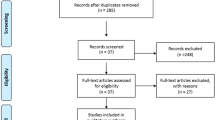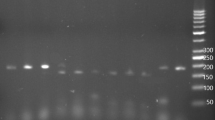Abstract
This study tested the hypothesis that promoter polymorphism T(–107)C of the human paraoxonase gene (PON1) is associated with risk of coronary disease. Participants (n=897) were recruited from a cardiology department. All underwent coronary arteriography and were defined as coronary artery disease positive (n=699) or negative (n=198). No association of the promoter genotypes with coronary disease was observed in the overall population, but the high expressor genotype (–107CC) was associated with decreased risk of disease in patients aged 60 years or under in univariate and multivariate analysis independently of established risk factors. A significant deficiency in paraoxonase relative to cholesterol was apparent in patients, even when they were matched with controls for total and low-density lipoprotein cholesterol levels. The –107 polymorphism was not associated with risk in older patients (61 years or over). Age was negatively associated with serum concentrations and activities of paraoxonase; serum paraoxonase was significantly higher in those aged under 61 years than in those aged 61 or over. Age was an independent predictor of paraoxonase concentrations. The results indicate that in this population of patients the promoter polymorphism T(–107)C of the PON1 gene is an independent risk factor for coronary disease in those 60 years or younger. The data are consistent with the hypothesis that lower expression of this anti-oxidant enzyme increases risk of coronary disease. Ageing has also been identified as an independent determinant of serum paraoxonase levels. Ageing is correlated with reduced serum paraoxonase levels, which may compromise the protective influence of enzyme. The results are consistent with the contention that the protective, anti-oxidant capacity of high density lipoproteins is at least in part genetically determined.
Similar content being viewed by others
Author information
Authors and Affiliations
Additional information
Electronic Publication
Rights and permissions
About this article
Cite this article
Leviev, I., Righetti, A. & James, R.W. Paraoxonase promoter polymorphism T(–107)C and relative paraoxonase deficiency as determinants of risk of coronary artery disease. J Mol Med 79, 457–463 (2001). https://doi.org/10.1007/s001090100240
Received:
Accepted:
Published:
Issue Date:
DOI: https://doi.org/10.1007/s001090100240




